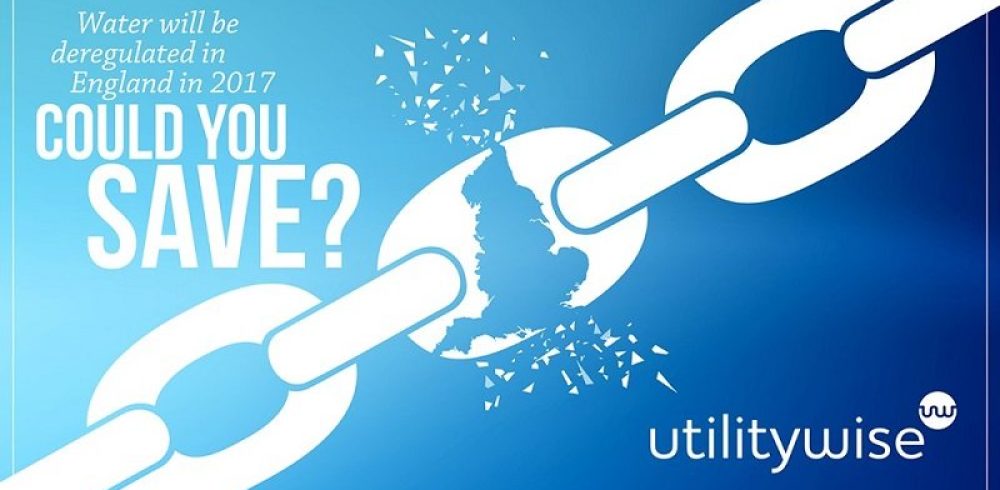- Businesses in England could collectively save as much as £200m on their water bills
- Approximately 1.2 million businesses now have control over who supplies their water
- Water market became deregulated on 1st April 2017
Figures released by Utilitywise have revealed that businesses in England could collectively save up to £200m on their water bills. This follows deregulation of the English water market, giving business owners the chance to renegotiate their existing water contracts or look to a new supplier.
Utilitywise, the UKâs leading energy and utilities consultancy, estimates that savings on water tariffs will be around 10%, dependent on region. The water market in England is valued at £2bn[1] and 1.2[2] million businesses now have direct control over who supplies their water.
In the month following water deregulation on 1st April, Utilitywise has received more than 50,000 business engagements to the water page of their website regarding water supply. This represents a 740% increase from the month prior to deregulation, as business owners look to take advantage of potential savings on their water bill in a time of economic uncertainty and rising costs.
While the initial response to water deregulation has been encouraging, there are potentially hundreds of thousands of businesses that are missing out on its benefits. Separate research from Ofwat[3], the industry regulator, and Utilitywise[4] both revealed that less than half of the 1.2 million business responsible for their own water supply were aware that they would soon have a choice of water retailer.
Brendan Flattery, CEO of Utilitywise, said: We are delighted to see such a high number of enquiries since the water market deregulated, but also believe that more can be done to make businesses aware of its potential benefits. While savings of 10% may result in relatively modest reductions for smaller businesses initially, increased competition within the water market will undoubtedly lead to greater savings down the line as well as improved service. To compliment this, bundled utilities contracts, such as those offered by Utilitywise, which combine electricity, gas and water, have shown to save businesses up to 25%. Ofwat has a responsibility to ensure that these companies are aware of the water options open to them and to push for greater margins of savings for smaller businesses, like we have seen in Scotland.
The Scottish Water market deregulated in 2008 with similar low margins. After three years the regulator intervened, widening the retail margin to allow savings of 20%+ for all businesses. Since the intervention, roughly 50% of businesses have switched, which could provide a clear blue print for Ofwat and the English water market.














